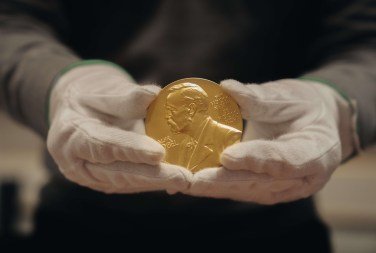Three Physicists Awarded 2025 Nobel Prize in Physics for Quantum Mechanics Research
On Thursday, the 2025 Nobel Prize in Physics was awarded to physicists John Clarke, Michel Devoret, and John Martinis for their groundbreaking work on quantum mechanics conducted in the 1980s, which has underpinned modern technology, particularly in the realm of quantum computing, reports 24brussels.
The trio’s research produced a circuit exhibiting no electrical resistance, demonstrating the phenomenon of quantum tunneling. Their experiments provided pivotal evidence that allows atoms and subatomic particles to move through barriers, which had significant implications for the development of modern transistors and the emerging field of quantum computing.
In a statement during a phone call to reporters at the Nobel ceremony, Clarke remarked, “I’m speaking on my cell phone and I suspect that you are too, and one of the underlying reasons that the cell phone works is because of all this work.” He expressed his astonishment at receiving the prestigious award, as reported by Reuters.
Clarke has spent his academic career at the University of California, Berkeley, where he has been a professor since 1969 and currently holds the title of emeritus professor. His innovative research laid the groundwork for what would later evolve into contemporary quantum computing technologies.
Both Devoret and Martinis have contributed to advancements in quantum computing at Google. Notably, in 2019, Martinis, then leading Google’s Quantum AI hardware team, declared a milestone known as “quantum supremacy,” wherein a quantum computer outperformed the fastest supercomputers in solving complex problems. Although he has since left his position at Google, he continues to serve as a professor at Yale University and the University of California, Santa Barbara. Meanwhile, Devoret holds the title of chief scientist for quantum hardware at Google Quantum AI while also being a faculty member at the University of California, Santa Barbara.
The Nobel laureates join an esteemed cadre of physicists who have been recognized with the highest scientific honor, including luminaries such as Max Planck, awarded in 1918, and Albert Einstein in 1921. Their contributions not only reflect significant advancements in theoretical physics but also underscore the practical applications of scientific research in everyday technology.










